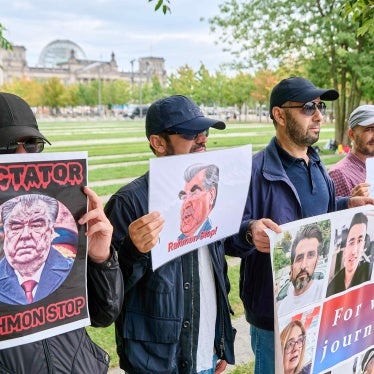UK efforts to deport terrorism suspects to countries where they risk torture suffered a major blow on April 27 when a British court ruled that two men, alleged members of the Libyan Islamic Fighting Group, could not be sent back to Libya, despite the al-Qadhafi regime’s promises not to ill-treat them on return. Human Rights Watch’s January 2006 report on civil and political rights in Libya features prominently throughout the decision, which concluded that torture is used extensively against opponents of the Libyan government, in particular against Libyan Islamic Fighting Group members. The court ruled that a “memorandum of understanding,” brokered between the UK and Libyan governments in 2005, containing Libya's promises to treat the men humanely could not be considered reliable and the men were thus at risk both of torture and a “complete” denial of a fair trial on return. Human Rights Watch’s extensive research on diplomatic assurances against torture has been used in courts around the world, including in the US, Canada, UK, Netherlands, Switzerland, Austria, and Russia, to illustrate that such promises do not provide an effective safeguard against torture.
|
Impact
UK Court Rules Diplomatic Assurances Not Reliable in Deportation Cases
Your tax deductible gift can help stop human rights violations and save lives around the world.
Region / Country
Topic
Most Viewed
-
November 25, 2019
A Dirty Investment

-
March 29, 2021
“Everything I Have to Do is Tied to a Man”

-
September 20, 2017
Iraq/KRG: 1,400 Women, Children From ISIS Areas Detained

-
November 12, 2018
“Shall I Feed My Daughter, or Educate Her?”

-
January 14, 2026
Sri Lanka: UN Finds Systemic Sexual Violence During Civil War




